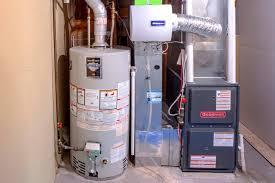Water heater boilers are essential appliances in many households, providing hot water for various purposes from showers to dishwashing. Proper usage and maintenance of these devices not only ensure longevity but also optimize energy efficiency, thereby reducing utility bills and environmental impact. This guide aims to outline effective practices for the efficient use and maintenance of water heater boiler, helping homeowners get the most out of their investment.
Choosing the Right Water Heater Boiler
Selecting the appropriate water heater boiler is crucial for efficiency. Factors such as size, fuel type (electric, gas, or solar), and energy efficiency ratings (like Energy Star) should be considered. Larger families may require higher capacity boilers, while energy-efficient models can significantly lower operating costs over time.
Installation Considerations
Proper installation by a qualified professional ensures safety and efficiency. Location matters; place the boiler close to where hot water is frequently used to minimize heat loss through piping. Adequate ventilation is essential for gas boilers to prevent carbon monoxide buildup.
Efficient Usage Tips
-
Set the Thermostat Correctly: Lowering the temperature to 120°F (49°C) reduces energy consumption without sacrificing comfort.
-
Insulate Pipes: Insulating hot water pipes reduces heat loss during distribution, ensuring hot water reaches taps promptly.
-
Use Timers and Programmable Controls: Timers can schedule boiler operation to coincide with peak usage times, optimizing energy use.
-
Limit Hot Water Use During Peak Hours: Spreading out hot water usage throughout the day reduces strain on the boiler and improves efficiency.
Maintenance Practices
Regular maintenance enhances performance and extends the lifespan of water heater boilers:
-
Annual Inspections: Have a professional inspect the boiler annually to check for leaks, corrosion, or efficiency issues.
-
Flush Sediment: Sediment buildup in the tank reduces efficiency. Flushing the tank annually removes sediment, improving heating efficiency.
-
Check Pressure Relief Valve: Ensure the pressure relief valve is functioning correctly to prevent pressure buildup and potential safety hazards.
-
Inspect Anode Rod: Replace the anode rod every few years to prevent corrosion within the tank, which can lead to leaks and reduced efficiency.
Troubleshooting Common Issues
Understanding and addressing common problems promptly can prevent costly repairs:
-
No Hot Water: Check pilot light (if gas), thermostat settings, or electrical connections.
-
Strange Noises: Sediment buildup or loose heating elements can cause noises. Flushing the tank or tightening components may resolve this.
-
Leaks: Inspect fittings and connections for leaks. Addressing leaks promptly prevents water damage and mold growth.
Conclusion
Water heater boilers are indispensable for modern living, providing convenience and comfort. By following these guidelines for efficient usage and maintenance, homeowners can maximize their boiler’s lifespan, reduce energy consumption, and ensure uninterrupted access to hot water. Investing time and effort in proper care and usage pays off with lower utility bills, fewer repairs, and a smaller environmental footprint.

